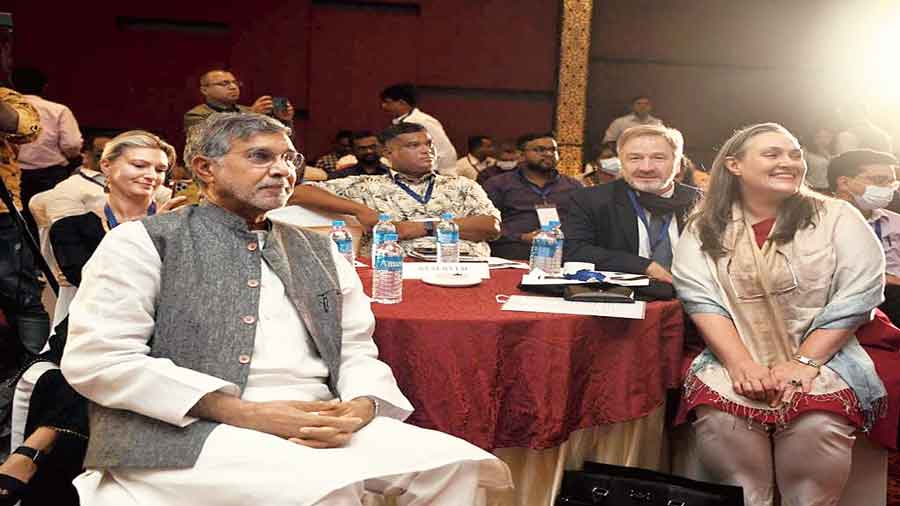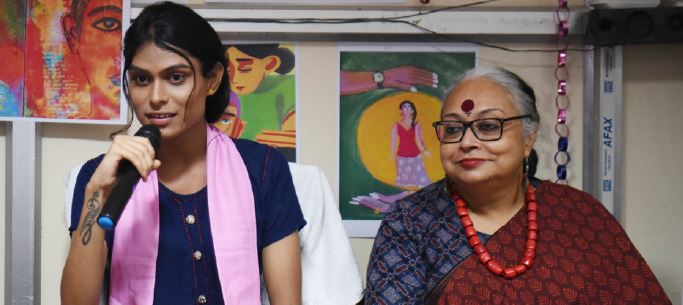In 2022, a girl from South 24-Parganas district was rescued from Muzaffarnagar in Uttar Pradesh.
She was trafficked by a man who had sent her a friend request on Facebook. After the request was accepted, he gradually befriended the girl. In January this year, a 15-year-old girl from north Bengal was rescued from a bus in Madhya Pradesh. The girl is said to have been befriended by the alleged trafficker on Facebook through a fake profile.
The Internet has emerged as a key source market for traffickers, police, activists and cyber experts said at a conclave on Thursday. The challenges posed by the pandemic have amplified the problem, they said. A steep rise in school dropouts and increased time spent online have made minor girls more vulnerable than they were before the pandemic, a rights activist said at the conclave. “Due to the continuing challenges posed by the pandemic, the numbers of out-of-school children has grown exponentially, thus increasing their online access with little or no supervision,” said Rishi Kant, the founder of Shakti Vahini, an NGO that works to combat human trafficking.
Kant was a part of a two-day conclave on Working Together to Combat “Cyber-Enabled Human Trafficking - Emerging Challenges,” that started on Thursday. The meet is being organised by the US Consulate in Kolkata in partnership with Shakti Vahini and CyberPeace Foundation, a think tank of cyber security and policy experts. “In most cases, the IP addresses are in the UK or the US. Indian police investigating the case find going forward very difficult,” said Kant.
Kakali Ghosh Kundu, the inspector-in-charge of Baruipur Women’s police station and anti-human trafficking unit, was among the participants at the conclave, being held in New Town.
“Almost every girl has a phone. Many homes do not have a TV. But a phone is much cheaper. Internet penetration has shot up like anything. Traffickers are using this as a tool. Facebook and WhatsApp are also being used to lure young girls,” she said.
According to the police and activists, several girls rescued from brothels in other states said that they came in contact with a trafficker by responding to WhatsApp messages and Facebook friend requests. In many cases, the caller befriends the girl before calling her on a “date”.
The area is usually near a railway station. A spiked drink or food is offered to the unsuspecting teenager. When she opens her eyes, she finds herself either on a long-distance train or in another city. At the conclave at a hotel in New Town, Nobel laureate Kailash Satyarthi and US consul general Melinda Pavek joined representatives from the US, India, Nepal and Bangladesh.
The participants will “collaborate on strategies that will effectively address online human trafficking, enable response mechanisms and strengthen collaboration between source and destination states and agencies,” said a statement. The participants included police officers from the anti-human trafficking units in Bengal and the neighbouring countries.
“Unfortunately, there is no international law or convention that prevents online human trafficking. It is crucial to have stringent laws around access and use of data, to be able to address this global phenomenon at its source. The latest technology, rigorous surveillance, direct action and rehabilitation must be used to tackle online sexual abuse,” said Satyarthi.
The founder of CyberPeace Foundation, Major Vineet Kumar said called online trafficking an “emerging and urgent issue”.
“Technology can aid investigations and shed light on the operating procedures of trafficking networks. Technology can enhance prosecutions by building cases based on digital evidence which will alleviate the suffering of victims during criminal proceedings. Technology can be used to provide support services to survivors, helping them recover and rebuild their lives,” said Melina Pavek, the US consul general.

